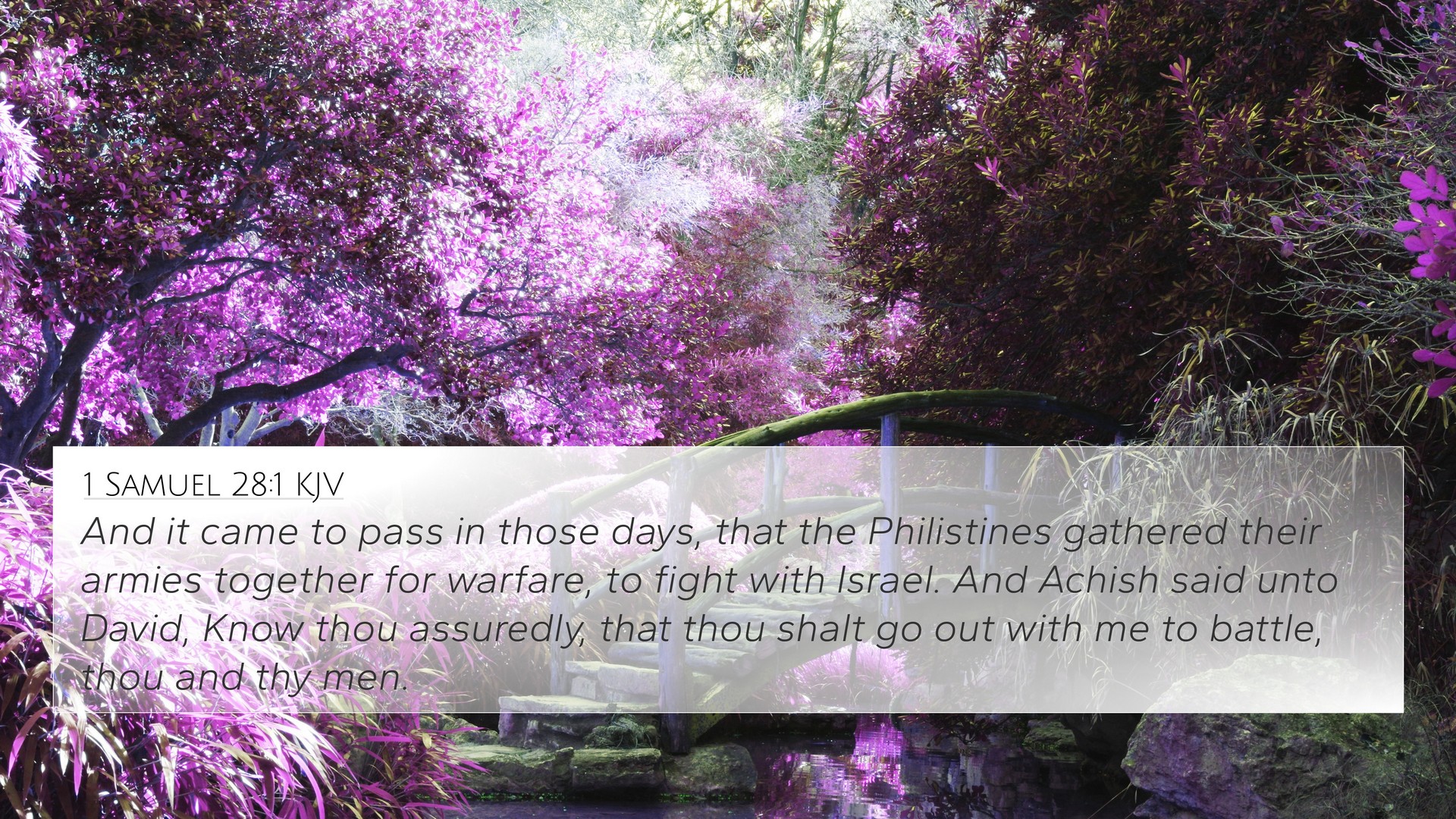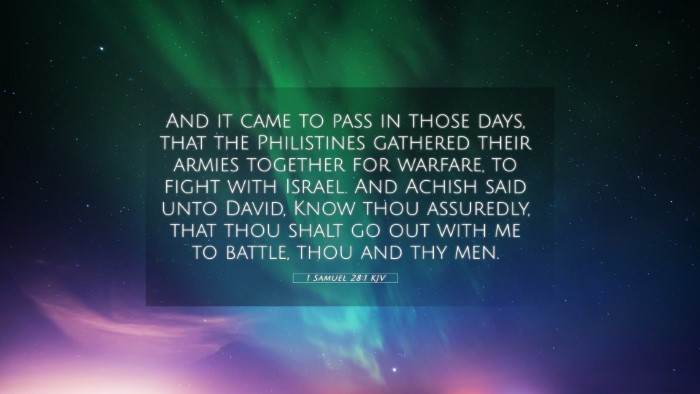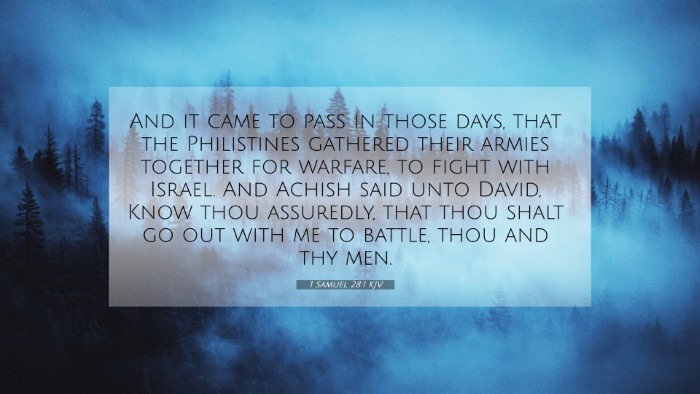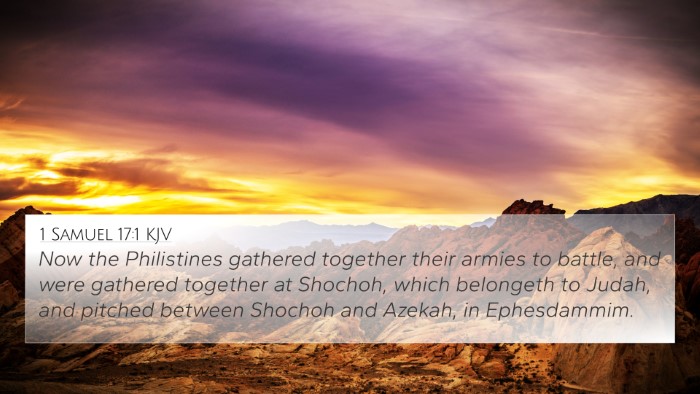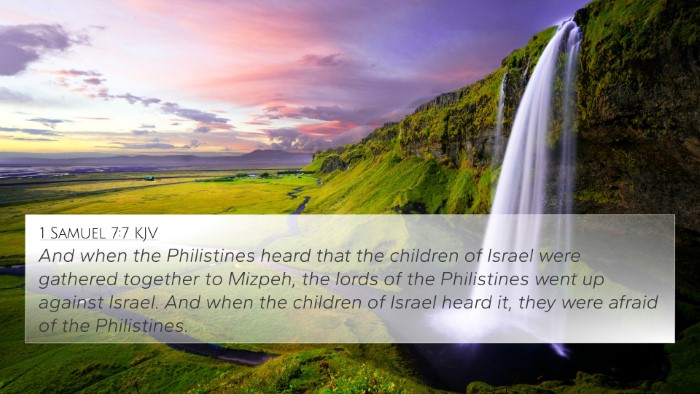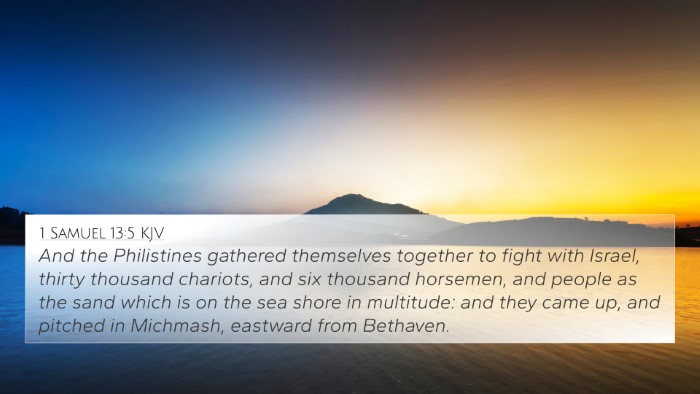Old Testament
Genesis Exodus Leviticus Numbers Deuteronomy Joshua Judges Ruth 1 Samuel 2 Samuel 1 Kings 2 Kings 1 Chronicles 2 Chronicles Ezra Nehemiah Esther Job Psalms Proverbs Ecclesiastes Song of Solomon Isaiah Jeremiah Lamentations Ezekiel Daniel Hosea Joel Amos Obadiah Jonah Micah Nahum Habakkuk Zephaniah Haggai Zechariah MalachiChapter
1 Samuel 1 1 Samuel 2 1 Samuel 3 1 Samuel 4 1 Samuel 5 1 Samuel 6 1 Samuel 7 1 Samuel 8 1 Samuel 9 1 Samuel 10 1 Samuel 11 1 Samuel 12 1 Samuel 13 1 Samuel 14 1 Samuel 15 1 Samuel 16 1 Samuel 17 1 Samuel 18 1 Samuel 19 1 Samuel 20 1 Samuel 21 1 Samuel 22 1 Samuel 23 1 Samuel 24 1 Samuel 25 1 Samuel 26 1 Samuel 27 1 Samuel 28 1 Samuel 29 1 Samuel 30 1 Samuel 31Verse
1 Samuel 28:1 1 Samuel 28:2 1 Samuel 28:3 1 Samuel 28:4 1 Samuel 28:5 1 Samuel 28:6 1 Samuel 28:7 1 Samuel 28:8 1 Samuel 28:9 1 Samuel 28:10 1 Samuel 28:11 1 Samuel 28:12 1 Samuel 28:13 1 Samuel 28:14 1 Samuel 28:15 1 Samuel 28:16 1 Samuel 28:17 1 Samuel 28:18 1 Samuel 28:19 1 Samuel 28:20 1 Samuel 28:21 1 Samuel 28:22 1 Samuel 28:23 1 Samuel 28:24 1 Samuel 28:25